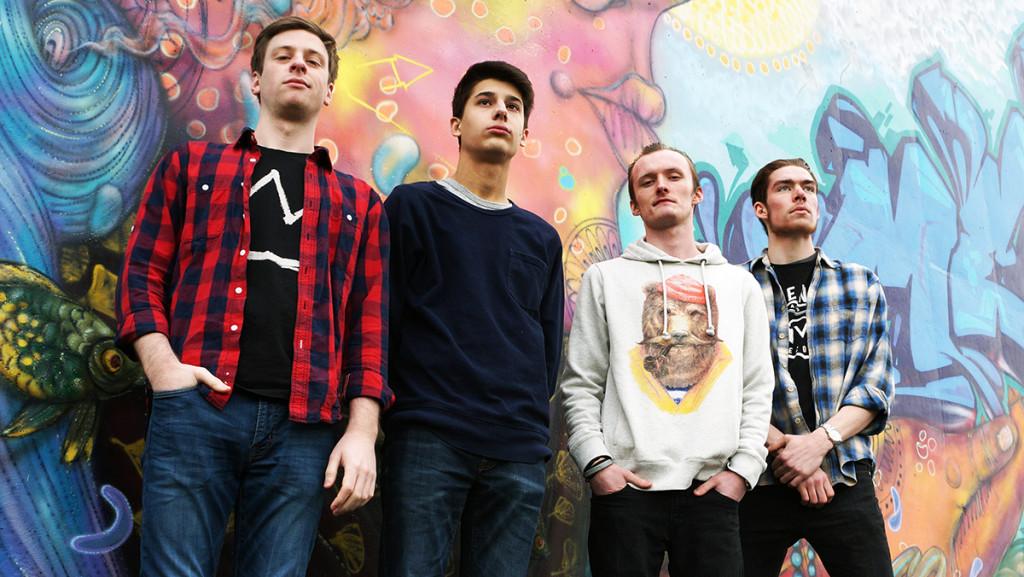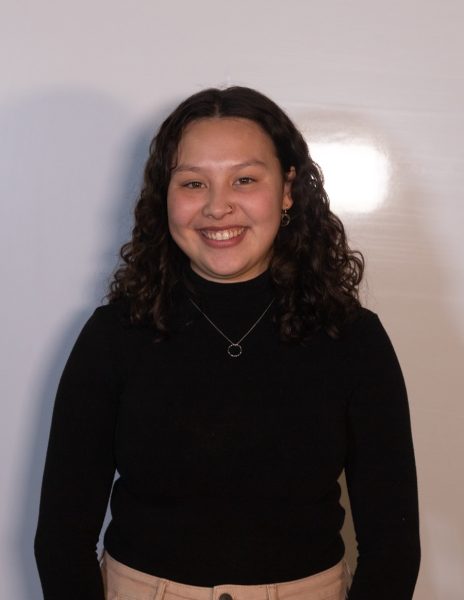Soft, melodic tunes set to heartfelt, reflective lyrics entice listeners as soon as they press play on “Retreat to Space”, Ithaca College alum Sarah Noell’s ’17 first album, released Oct. 16.
Noell said she took quarantine as an opportunity to work on her first full album during the COVID-19 pandemic because of the extra time she had to reflect and delve into the musical process.
“I gave more thought to the writing than I normally would, and then the same thing happened when I started recording,” Noell said. “Previously, I would just record one take and stop, but this time, I layered guitars, and I layered vocals, and I added more instruments because I had the time. I could keep going, and no one was expecting anything.”
The music scene in Ithaca and around the world has drastically changed in light of the pandemic. Because of restrictions on gathering and enforced social–distancing guidelines, live and in-person events have essentially been put on pause. However, for Noell and other Ithaca musicians, the pandemic has been an opportunity to release new music and experiment with their skill sets.
Noell said that although creating an album without any help was a daunting task, it provided an opportunity to learn how to use technologies like GarageBand, a music production software, and play instruments like the lap slide guitar.
“Figuring out how to use all the equipment in general was a really good learning experience,” Noell said. “I don’t think I would have forced myself to jump into it as much as I did because I had the time.”
In contrast to this lengthy process, senior Eddy Crowley, known by his stage name Teddy Hyde, said the album he created in quarantine, ”Talkies,” released Sept. 13, was entirely improvisational. Hyde Crowley said he sat at the piano without any prior composition or practice, played whatever came to mind and recorded 12 spoken word–style songs in just two hours. He said he was inspired by musician Tom Waits and the day-by-day mentality he developed during quarantine.
“Being in the house all the time and not seeing many different people had an influence subconsciously on my desire to make something that was entirely present, that could only exist in that moment,” Crowley said.
Freshmen Spencer Dovi and Tom Crowley are members of WhiteBoard PipeDreams, a band Tom Crowley said was formed in its members’ hometown of Rochester, New York. Dovi said the pandemic impacted the topics they wrote about, especially as they dealt with the transition from high school to college in a virtual setting.
“It’s a big coping mechanism for sure,” Dovi said. “Being stuck inside, a lot of the songs on the album that I wrote … were about the emotions we went through, losing the end of a senior year or relationships that got funky because of quarantine.”
Tom Crowley said the pandemic also gifted WhiteBoard PipeDreams with the time and material needed to release its first album, “Okay, Kid,” on Sept. 12. He said that finally releasing a complete album, especially during the pandemic, was gratifying.
“The feeling of having an album and seeing it on Spotify, the same home where all my favorite artists are kept and where I can listen to them, was a feeling I have never felt before,” he said.
All of the musicians said that no matter what they accomplished during the pandemic, there is one component of the music scene that they continue to miss: live performance.
St. John Faulkner, drummer for local alternative-rock, pop-punk band Maple Hill, said he misses the artistic atmosphere of Ithaca. He said that although Maple Hill has worked on musical projects during the pandemic, including single “Playing House,” released Sept. 18, it has not done any live performances.
Because of the coronavirus, annual music festivals were canceled or held in a virtual format. Porchfest was canceled, while GrassRoots aired archival footage of past festivals and Ithaca Festival hosted a virtual art show. The State Theatre of Ithaca has postponed all live performances to 2021, a move that has caused economic hardships for the organization. In order to address this financial situation, the theater has launched a “Save Your Seat” campaign in which people can pay $100 for a personalized plaque to be posted on a chair in the theater. On Dec. 1, the theater is hosting a free, virtual benefit concert to promote this campaign.
“The sort of togetherness of live music and celebration is seriously missed in such a culturally diverse place like Ithaca where people can get together and celebrate,” Faulkner said. “It’s just weird. No GrassRoots, no Ithaca Fest, no anything. … It feels like it’s missing a piece of its identity right now.”
Crowley said that although he misses live events, he thinks that new virtual performances are forcing artists to adapt and grow. Crowley performed at Ithaca Underground’s Concert for the Revolution on Oct. 30, a virtual concert that promoted social causes like the Black Lives Matter movement. Hyde said he enjoyed this experience because it gave him the chance to experiment with the look of his Zoom background and with electronic-style music using technology, like synthesizers, that is not typically available during a live performance.
“Making it work in a new way that you weren’t forced to try to make work before, is, I think, always a good thing for any artist,” Hyde said. “To be able to … really work out muscles you never worked out before, I think that makes everybody a better musician, a better artist, a more experienced person.”
Noell said that she hopes other musicians have also been able to grow as artists these past eight months, turning a negative situation into a learning opportunity.
“Before this, I relied heavily on other people,” Noell said. “I would be like, ‘I can’t do this because I don’t own a microphone. I can’t do this because I don’t know how to use the production equipment that’s free on my laptop,’ just making excuses for myself. … If you want to do something, you can do it.”















